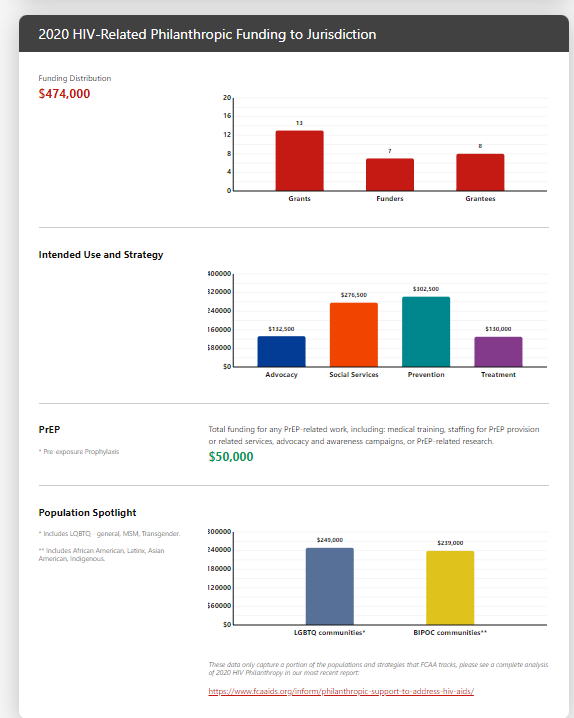A Letter on the Recent Tennessee Funding Decision
Dear Colleagues,
We want to direct your attention to important recent advocacy amfAR in response to the recent news that the State of Tennessee will no longer be accepting vital funding from the Centers for Disease Control and Prevention (CDC) to support HIV prevention, testing, and care in the state as of the end of May 2023.
This funding cut significantly threatens local community-based organizations that, as amfAR rightfully highlights, have not only been at the forefront of the response to HIV, but also the COVID-19, flu, and Opioid-related crises. It will also slash the resources of organizations that have, in recent years, made tremendous strides in increasing access to PrEP and HIV services for underserved populations, particularly BIPOC and LGBTQ communities.
Tennessee is also home to Shelby County, one of the focus jurisdictions in the Federal Ending the HIV Epidemic in the U.S. initiative – a ten-year federal initiative focused on the communities (referred to as “jurisdictions”) most affected by HIV in the U.S. While the federal government has allocated specific funding for this initiative, philanthropy plays an important role in supporting the communities doing work in these jurisdictions, as well as advocacy efforts to leverage public funding dollars.

However, we also know through our own data that less than $500,000 in HIV-related private philanthropy reached Shelby County in 2020.
We know philanthropy alone won’t be able to fill the vacuum created by Tennessee’s rejection of federal funding, much less the gap created if additional states follow suit. Nevertheless, there is power in our collective action.
What can you do?
- We encourage you to watch this space, and that of regional and national partners, for updates and actions. Current calls to action from amfAR and NMAC include how to contact the Tennessee State Department of Health with your concerns, and an open letter to the CDC from NMAC.
- Check out the EHE data spotlight on Shelby County on AIDSVu that profiles side-by-side epidemiological and philanthropic data to inform your advocacy and responsive grantmaking efforts with evidence.
- Make sure national and local HIV, health, and racial justice funders are aware of this impending funding crisis in Tennessee.
- If you’re a member, log into the FCAA Membership and Grants Directory to find and partner with colleagues and grantees working in the state.
FCAA will continue to monitor the situation and share updates and opportunities for advocacy as they become available.
In 2020, FCAA membership disbursed roughly 60% of total HIV-related philanthropy. And just a few years ago, the Southern HIV Impact Fund was born from a group of dedicated Grantmakers coming around the table and deciding to work together, in new and bold ways.
FCAA is here to set that table, again, if needed.
Join us on March 9th to talk about the EHE data and help us brainstorm how we can move this data to advocacy.
Thank you for all you do. We’re here with you in this fight.
Masen Davis, Executive Director